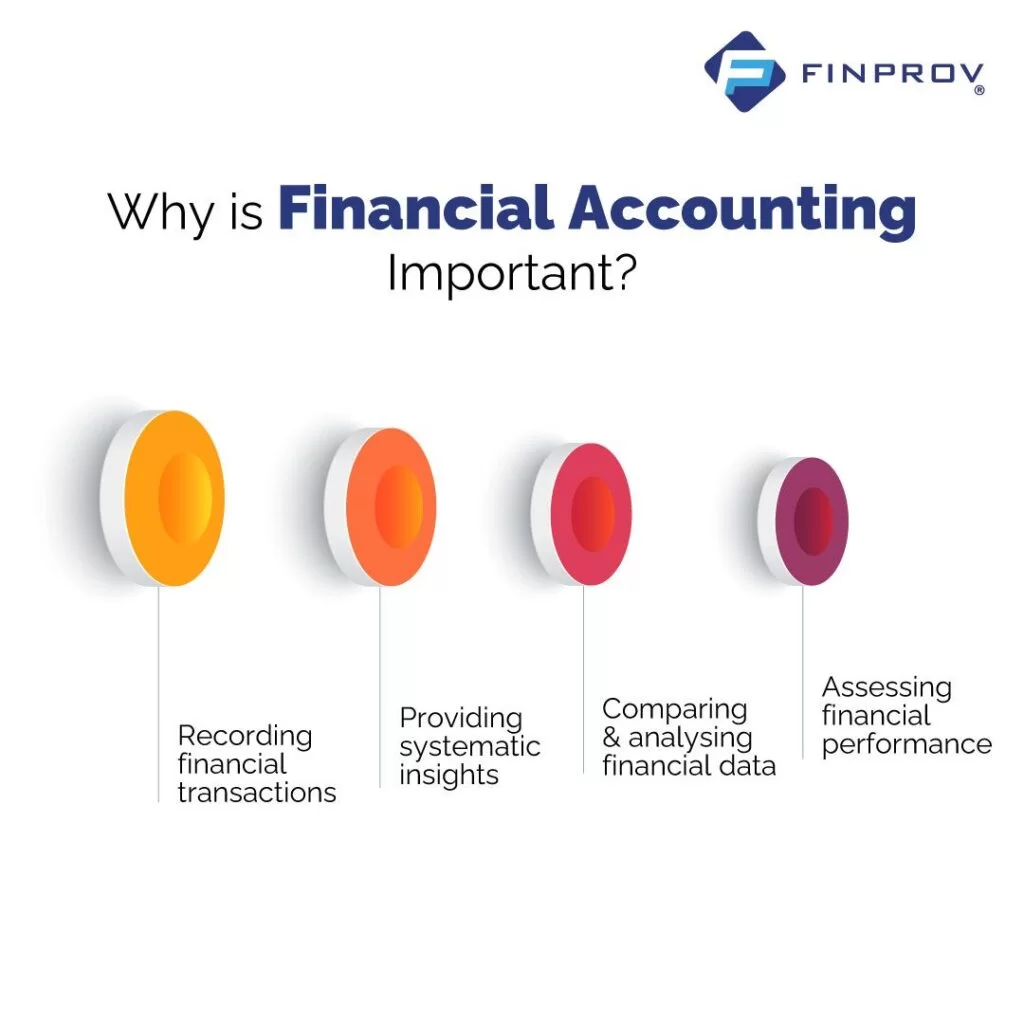Accounting is commonly guided as the language of business because it provides a standardised way to measure and evaluate a company’s performance across various activities, from design and production to sales. It is a crucial tool in translating these activities into meaningful financial information. Given the fundamental role of accounting in every business, pursuing a profession in this field offers stability and consistent job prospects for business students.
In addition, accounting is a diverse field with various branches. Among these branches, financial accounting is one of the most essential. Serving as the backbone for many other types of accounting, individuals who attain advanced degrees in accounting can significantly contribute to a company’s overall success. By mastering financial accounting principles and techniques, professionals can equip valuable insights into a company’s financial health, aid decision-making processes, and contribute to developing effective financial strategies. With their expertise, they play a vital role in driving a company’s growth and ensuring its long-term sustainability.
What is Financial Accounting?
A financial accountant can be likened to a skilled storyteller who brings coherence to the numbers recorded in a company’s financial books. The primary role of financial accounting is to gather the raw material, which consists of numerical data, and transform it into meaningful narratives known as financial statements. These statements provide a concise overview of the firm’s financial position and performance, allowing observers to assess its health and progress quickly. Such information is crucial for various stakeholders, both internal and external, including investors, regulators, and creditors.
Moreover, financial accounting serves to keep scores in the business world. When a company sets goals, the numbers derived from financial accounting serve as the yardstick to measure its progress. Key indicators such as income, equity, and available cash are tracked and evaluated to determine whether the company is meeting its objectives or falling short. Without the practice of financial accounting, a business runs the risk of encountering cash flow problems and even facing the threat of bankruptcy. Therefore, financial accounting is vital for monitoring and managing a company’s financial health, enabling timely decision-making and mitigating potential risks.
Objectives of Financial Accounting
Financial accounting serves numerous objectives across all types of companies, with its primary aim being to provide accounting and financial information to both internal and external stakeholders.
The cornerstone of financial accounting lies in preparing and presenting financial statements, which serve as the primary and reliable source of information regarding a company’s business activities and financial performance. Financial accounting serves various essential purposes in a company. It involves compiling and presenting financial accounts for a specific period, providing a comprehensive overview of the organisation’s financial activities. By determining the financial position, financial accounting helps ascertain crucial aspects such as debts, liabilities, assets, and property, enabling a clear understanding of the company’s financial health.
One of the key functions of financial accounting is evaluating cash flows. Financial statements offer valuable insights into the company’s ability to manage its cash resources effectively. Additionally, financial accounting consistently measures private income, allowing a thorough assessment of profitability and financial performance.
Financial accounting also plays a vital role in monitoring business performance. It enables stakeholders to track and analyse financial data, ensuring the company’s objectives are met and providing a basis for informed decision-making. Furthermore, financial accounting contributes to fraud prevention and cost control by establishing proper mechanisms to safeguard financial resources and detect fraudulent activities.
Another important aspect of financial accounting is the disclosure of economic resources. It provides valuable information about the sources of economic resources within the company, shedding light on its financial structure and facilitating transparency. Timely provision of economic data is a key objective of financial accounting, ensuring that relevant parties receive the necessary information to promptly prepare financial statements and reports. Financial accounting helps foster trust among individuals and organisations by promoting transparency and accountability.
And financial accounting aids in evaluating management policies. It offers insights into the effectiveness of the company’s policies and practices, allowing for adjustments and improvements as needed. Financial accounting is a fundamental tool for capturing, organising, and communicating financial information. It enables stakeholders to make informed decisions, supports effective financial management, and contributes to the success and growth of the company.
Why is Financial Accounting Important?

Financial accounting is critical, providing essential information for companies to record, track, and understand their financial data. Its importance can be summarised as follows:
Recording financial transactions
Financial accounting is responsible for accurately recording and documenting all financial transactions through bookkeeping. This function ensures that all business activities are correctly recorded in the accounting ledger, providing a comprehensive overview of the company’s financial position.
Providing systematic insights
Small business owners rely on financial accounting to gain periodic insights into their business operations. By maintaining accurate financial records, they can assess the financial health of their company, identify trends, and create informed decisions based on reliable data.
Comparing and analysing financial data
Financial accounting enables business owners to compare and analyse financial data, gaining insights into competitors and identifying potential investment opportunities. By adhering to the general principles of accounting, financial data from different companies can be prepared and presented consistently, facilitating meaningful comparisons and the calculation of financial ratios.
Assessing financial performance
Financial accounting provides a foundation for evaluating a company’s financial performance. It enables the calculation of various financial ratios based on the company’s data, allowing for comparisons with industry benchmarks or competitors. This analysis aids in assessing profitability, liquidity, solvency, and other critical aspects of a company’s financial health.
Financial accounting is necessary for companies as it ensures accurate record-keeping, facilitates systematic insights, enables comparison and analysis of financial data, and supports informed decision-making. By following established accounting principles, financial accounting provides a standardised framework for preparing and interpreting financial information, enhancing transparency and enabling effective financial management.
Enrolling in financial and accounting courses allows individuals to expand their knowledge and skills. Finprov is an ed-tech institute specialising in accounting education, and we provide comprehensive accounting courses designed to enhance career prospects in the accounting domain. Our accounting courses include CBAT, PGBAT, PGDIFA, Income Tax, Practical Accounting Training, DIA, GST, SAP FICO, Tally Prime, MS Excel, and more. These courses are carefully crafted to cover essential topics and equip learners with the necessary expertise to excel in their careers.
We prioritise delivering highly effective training that prepares individuals for future-ready job roles. Our faculties are industry experts who bring their practical experience and knowledge into the classroom, ensuring that students receive relevant and up-to-date instruction.










